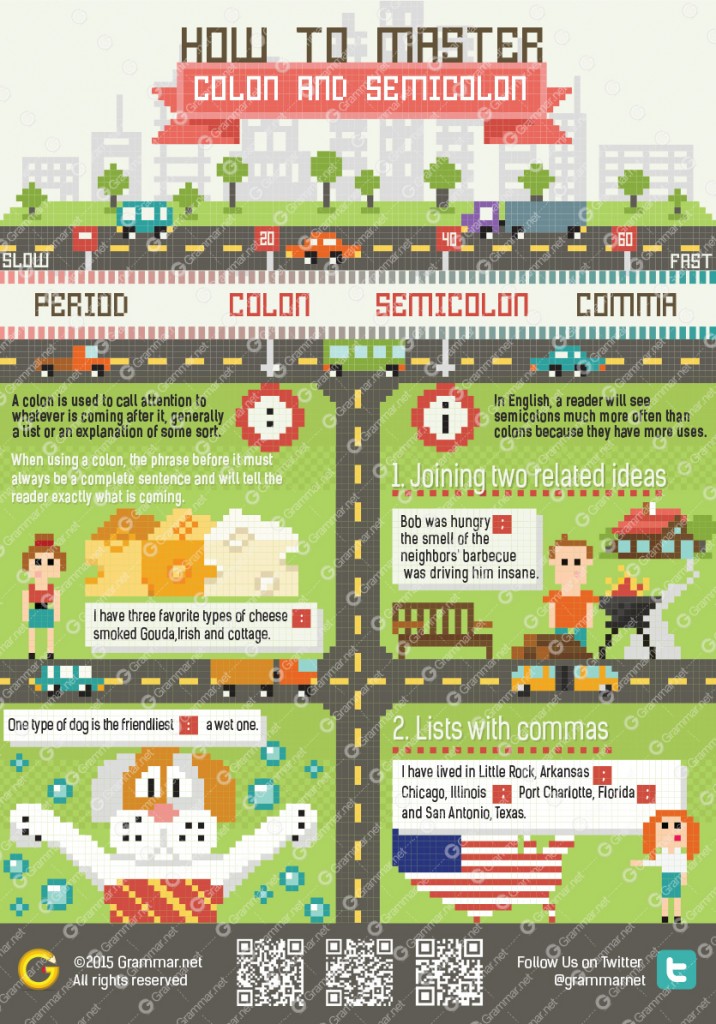Colons! Semicolons! These little devices should not send icicles down your spine; as the infographic will show you, they have different uses and are not difficult to work with.
To download high resolution poster click here.
A Hint to Remember the Difference
Think of punctuation in general as street signs. Commas and periods control speed; a comma slows the traffic down while a period is a stop sign. A colon slows traffic more than a semicolon. In Latin, “semi” means “half,” so “semi-fast” literally means half as fast. In a sentence, the colon slows the flow of the sentence more than a semicolon.
Semicolon
In English, a reader will see semicolons much more often than colons because they have more uses. The following three marks are semicolons:
; ; ;
1) Joining two related ideas
The word “and” with no punctuation joins two related ideas without slowing the reader down too much. A comma joins two ideas but gives a little speed bump. The semicolon joins ideas and slows the reader even more. A period is a full stop, and a piece with too many will be very jarring to read. To help the flow of the writing but still leave much of the “punch” of two complete sentences, try using a semicolon to join two closely-related ideas.
“Bob was hungry; the smell of the neighbors’ barbecue was driving him insane.”
“It was raining; the dog smelled like dirty laundry.”
2) Lists with commas
Things can get crazy with lists and commas hanging out all over the place. Semicolons can be used to make it all much easier to read.
“I have lived in Little Rock, Arkansas; Chicago, Illinois; Port Charlotte, Florida; and San Antonio, Texas.”
Colon
A colon is used to call attention to whatever is coming after it, generally a list or an explanation of some sort. When using a colon, the phrase before it must always be a complete sentence and will tell the reader exactly what is coming.
“I have three favorite types of cheese: smoked Gouda, Irish and cottage.”
“One type of dog is the friendliest: a wet one.”
“The look in his eye said it all: he was going to take my cheeseburger.”
“There is a solution for lazy students: use freelancehouse company to write their essays.”
Now that (hopefully) you know the difference between these two bits of punctuation, can you write a sentence that uses both?



![Top 10 words with challenging spelling [infographic]](https://www.grammar.net/wp-content/uploads/2015/06/10-misspelled-words_small-308x95.png)



